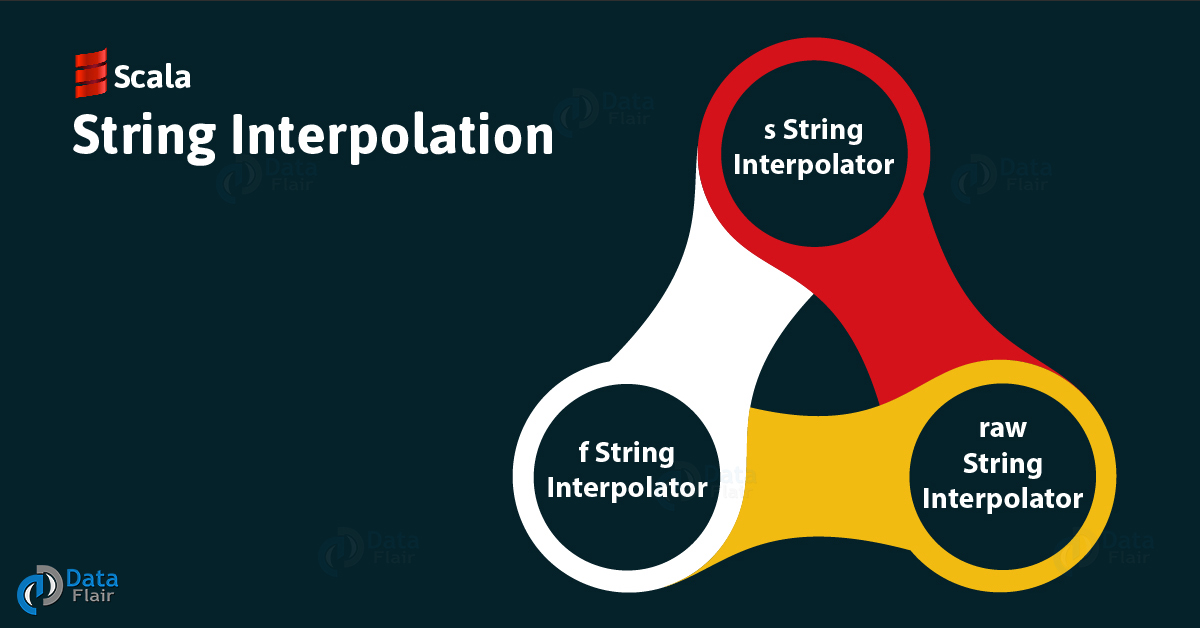Scala String Interpolation | s String, f String and raw string Interpolator
Free Scala course with real-time projects Start Now!!
Scala String Interpolation
Today in Scala String Interpolation tutorial, we will discuss the string interpolators ‘s’, ‘f’, and ‘raw’ with their examples.
So, let’s start Scala String Interpolation Tutorial.
Introduction to Interpolation in String
Scala String Interpolation is a new way to create them. But we didn’t always have this feature at hand. This was introduced in Scala 2.10, and is available in all newer versions as well.
By interpolating a string, we can embed variable references directly in a processed string literal. We have three kinds of Scala String interpolators. Let’s see them one by one.
s String Interpolator
When we prepend ‘s’ to any string, we can directly use variables in it with the use of the ‘$’ character. But that variable should be in scope in that string; it should be visible. Well, ‘s’ is a method.
scala> val name="Ayushi"
name: String = Ayushi
scala> println(s"Hello, $name, how are you?")
Hello, Ayushi, how are you?
See how simple that was? We can also process arbitrary expressions using ${}.
scala> println(s"Hello, 2+3 is ${2+3}")Hello, 2+3 is 5
scala> println(s"Is 2+3 equal to 5? That is ${2+3==5}")Is 2+3 equal to 5? That is true
We’ll also see this with case classes later.
f String Interpolator
Let’s first see the problem with the s interpolator.
scala> val a=77.000
a: Double = 77.0
scala> println(s"The number is $a")
The number is 77.0
This prints 77.0, not 77.000.
Now, see this with the f interpolator.
scala> println(f"The number is $a%.3f")
The number is 77.000
This is quite like the printf style format specifiers in C. These are %d, %i, %f, and so on.
scala> println(f"$name%s says the number is $a%.3f")
Ayushi says the number is 77.000
This is type-safe. If the variable reference and the format specifier don’t match, it raises an error. By default, the specifier is %s. Next in Scala String Interpolation is raw String Interpolator.
raw String Interpolator
raw is like s, except that it doesn’t escape literals within a string.
scala> println(raw"$name says the number is $a\nOkay, bye")
Ayushi says the number is 77.0\nOkay, bye
The same with s will give:
scala> println(s"$name says the number is $a\nOkay, bye")
Ayushi says the number is 77.0
Okay, bye
This tells us that the raw interpolator interpolates the string in a very raw sense.
So, this was all about Scala String Interpolation. Hope you like our explanation.
Conclusion
Hence, we discussed three types of Scala string interpolators: s String Interpolator, f String Interpolator, and raw String Interpolator in Scala with their examples. Furthermore, if you have any query, feel free to ask in the comment session.
Your opinion matters
Please write your valuable feedback about DataFlair on Google


